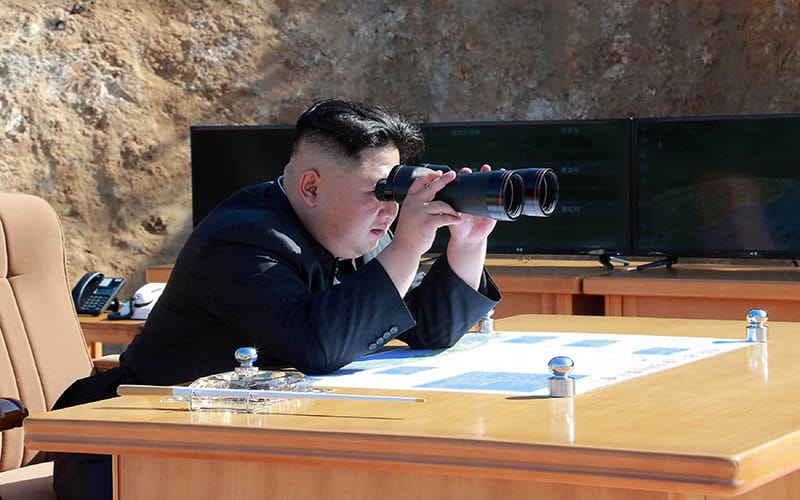Seoul: North Korean leader Kim Jong Un has supervised the testing of a “high-tech” new weapon, Pyongyang’s state media reported Friday, in a move that raises the temperature over denuclearisation talks.
“Kim Jong Un inspected the testing of a newly developed high-tech tactical weapon at the Academy of National Defence Science,” said the official Korean Central News Agency.
It said the test was successful but did not specify the type of device involved.
Pyongyang’s suspension of testing for nuclear weapons and ballistic missiles has been key to this year’s rapid diplomatic developments and North Korean-US negotiations, and has been repeatedly praised by President Donald Trump.
Trump and Kim met in a historic summit in Singapore in June, where they signed a vaguely worded document on denuclearisation of the peninsula.
Progress has since stalled as Washington and Pyongyang spar over the meaning of the document, and a return to testing would cast grave doubts over the future of the process.
The use of the word “tactical” in the KCNA report suggests that no long-range ballistic rocket or nuclear device was involved, and there were no immediate indications any such test had been detected by the South.
But in response to the first reports, Adam Mount of the Federation of American Scientists tweeted: “That pit of dread you felt in your stomach when you read this is your reminder that the DPRK missile test pause is voluntary, partial, and can fail without notice if it isn’t explicitly codified.”
DPRK is the abbreviation for the country’s official name.
– Running out –
Kim expressed “great satisfaction” and said the test marks “a groundbreaking turning point in strengthening the fighting power of our military”, KCNA said.
The “high-tech tactical weapon” had been developed over a long period and “builds impregnable defences of our country and strengthens the fighting power of our people’s army”, it added.
The news came almost a year after Pyongyang’s last test of an intercontinental ballistic missile and recalled the repeated announcements of 2017, which included by far its most powerful nuclear blast to date and rockets that brought the whole of the US mainland into range.
Soon afterwards Kim declared the development of his nuclear arsenal — which Pyongyang has long said it needs to defend itself against a possible invasion by the US — complete.
The Winter Olympics in the South then triggered a rapid diplomatic rapprochement on the peninsula that as well as the Singapore meeting has seen three summits between Kim and South Korean President Moon Jae-in.
A second encounter between Kim and Trump is expected in the new year.
But Pyongyang is demanding sanctions imposed against it over its weapons programmes are eased and has condemned US demands for what it calls its “unilateral” disarmament as “gangster-like”.
Washington insists the measures should stay in place until the North’s “final, fully verified” denuclearisation.
Prof Yang Moo-jin of the University of North Korea Studies in Seoul told AFP the test was “a signal to the US sent ahead of the high level talks that its own patience is also thinning out”.
After the Singapore summit, Trump announced the suspension of joint military exercises with the South, the United States’ treaty ally, calling them “provocative” in an echo of the North’s condemnations.
Earlier this month the allies resumed a small-scale amphibious drill, the Korea Marine Exercise Program, prompting criticism by the North’s media.
[source_without_link]Agence France-Presse[/source_without_link]

